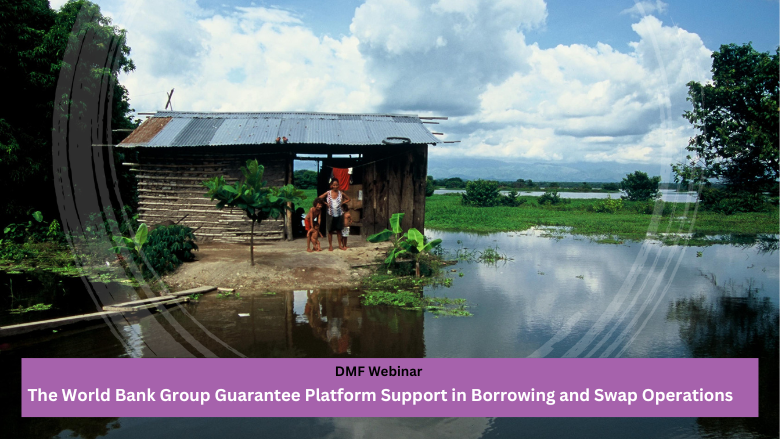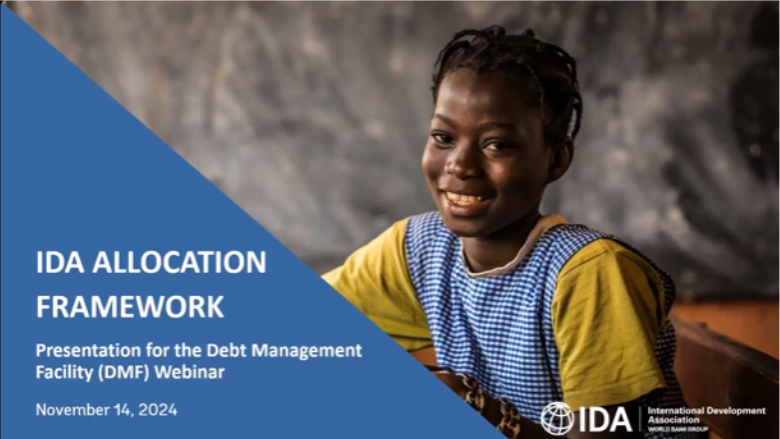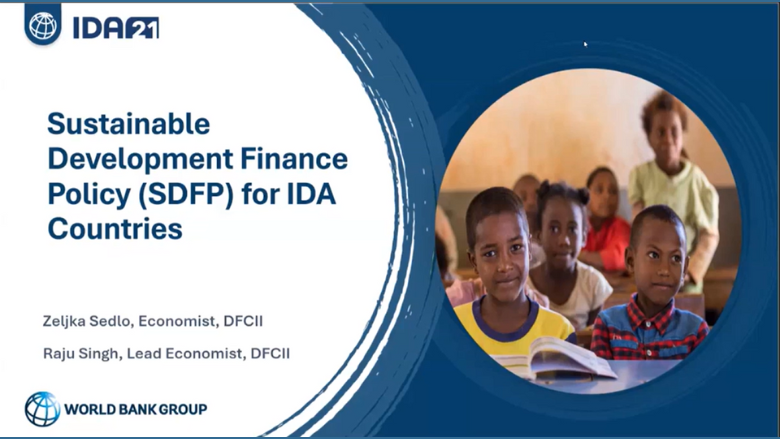Interested in learning more about debt management strategies and tools? Explore the online courses, workshops, webinars and more available below.
Online Courses
 Medium-Term Debt Management Strategy (MTDSx)This online course builds capacity in analyzing the characteristics of a government debt portfolio and developing a medium-term debt management strategy. The course explains the joint International Monetary Fund-World Bank (IMF-WB) MTDS framework and provides comprehensive training on the accompanying analytical tool, MTDS AT. Enroll now.
|
Debt Sustainability Framework for Low Income Countries (LIC DSFx)This online course provides an overview of the World Bank–IMF Low-Income Country Debt Sustainability Framework (LIC DSF) to help countries achieve their development goals while minimizing the risk of debt distress. The course allows participants to understand the LIC DSF and interpret the LIC DSF outputs presented in WB and IMF reports. Enroll now.
|
 Public Debt, Investment, and Growth: The DIG and DIGNAR Models (DIGx)This online course explains how to analyze the relationship between public investment, growth, and public debt dynamics, using two dynamic structural models: the Debt, Investment, and Growth (DIG) model and the Debt, Investment, Growth and Natural Resources (DIGNAR) model. Enroll now. |
 Projecting Public Debt - The Public Debt Dynamics Tool (DDTx)This two-module online course explains how to project the evolution of public debt over time for a given set of projections of the relevant macro-fiscal variables, using the Excel-based Public Debt Dynamics Tool (DDT). Enroll now.
|
 Public Debt Dynamics under Uncertainty (DDUx)This online course provides an overview of how to assess public debt dynamics under uncertainty. Upon completing the course participants will have learned how to produce and interpret fan charts and understand the concepts of safe debt and maximum debt limits. Enroll now.
|
 Debt Management Performance Assessment (DeMPA)This online course will provide participants with knowledge on application of the revised DeMPA tool to assess comprehensive debt management functions in their countries. The DeMPA tool provides a set of indicators for comprehensively assessing debt management performance in developing countries. Enroll now. |
Peer-to-Peer Learning
Debt Management Practitioners Program (DMPP)
The Debt Management Practitioners’ Program (DMPP) offers experienced debt managers from DMF-eligible countries an opportunity to expand their know-how and knowledge by working closely with the World Bank’s debt management experts. DMPP participants typically come to Washington, DC, for three months to work on one large analytical task, one technical assistance mission outside their region and Washingon-based training and seminars. Learn more.
Workshops
Sovereign Balance Sheet Risk Management
This five-day workshop aims to discuss practical solutions to identify, measure and mitigate different types of risks, affecting both sides of the sovereign balance sheet, within an asset and liability management framework. The final objective is to contribute to increase the country’s resilience to financial shocks by enhancing their capacity to manage the sovereign’s balance sheet risks. The targeted participants are officials from the finance ministry and central bank who have direct involvement in managing assets and/or liabilities. Past workshops: December 2019: Bahrain | February 2019: Indonesia
Cash Management
This five-day workshop focuses on cash flow forecasting and cash management by central governments. Its goal is to increase awareness of cash and debt managers about the importance of accurate cash flow forecasting and their knowledge on sound cash management practices to ensure that governments meet their financial commitments on time and in a cost-efficient manner. The workshop covers all the dimensions relevant to its theme, including forecasting of revenue and expenditure, stress testing of projections, coordination between cash and debt management as well as the options to invest excess cash in the market. It consists in short and practical presentations followed by hands on exercises using an excel-based toolkit specifically designed by the debt and risk management experts at the World Bank Treasury. Past workshops: December 2019: Ghana | July 2019: Peru | September 2018: Macedonia
Assessing and Managing Risks from Contingent Liabilities
This five-day workshop aims to contribute to increased awareness about the risks governments are exposed to from contingent liabilities (CL) and to sensitize risk managers to frameworks and tools in identifying, measuring, and managing these risks with a focus on sovereign credit guarantees and on-lending. This workshop will cover conceptual issues related to contingent liabilities as well as focus on analyzing and measuring risks related to sovereign credit guarantees and on-lending using presentations, case studies, and interactive exercises led by debt and risk management experts at the World Bank. Additionally, participants will discuss various risk mitigation tools, including the structuring of guarantee agreements (e.g. guarantee fees, collateral, etc.), limit setting, reporting and monitoring, as well as provisioning for financial losses. Download the Learning & Training Notes | Past workshops: March 2019 | May 2018
Designing Government Debt Management Strategies
This five-day workshop guides participants through the processes of developing a public debt management strategy based on an analysis of financial cost and risk tradeoffs.
Presentations and country cases illustrate the different stages of the strategy development process. Hands-on exercises focus on quantitative tools necessary to support debt management decisions such as calculating exposure risk indicators and scenario analysis. Participants present the framework for debt management strategy in their respective countries to their peers. Download the Learning & Training Notes | Past workshops: June 2019
Implementing Government Debt Management Strategies
This five-day workshop aims to build capacity in various aspects of implementing a debt management strategy, including designing a cost-effective funding program, in ways that contribute to developing the domestic debt market.
Participants explore techniques to alter the existing portfolio structure, using swap operations, exchange offers and buyback programs. The workshop combines conceptual presentations, case studies, and a hands-on exercise to illustrate the processes and procedures for implementing a debt management strategy. Past workshops: June 2019










